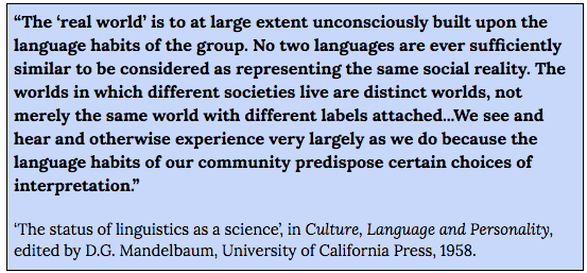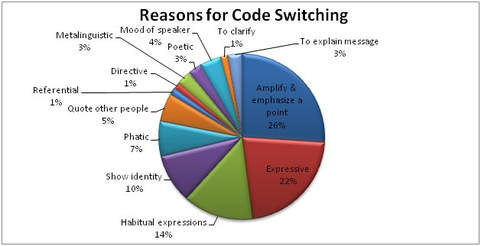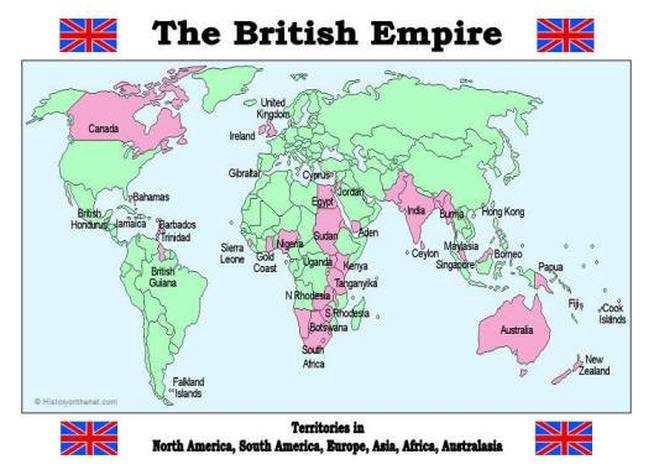How are language and meaning shaped by culture and context?
How and why do languages change and evolve?
How and why do languages change and evolve?
Essential Question:
- To what extent does language shape identity and our reality?
We all belong to multiple groups, whether formally or informally. These can range from your science study group to your English class to your family (with your siblings, with your parents, with your grandparents), to your basketball team to your school community.
Definition of community: A group of people that share the same customs, interests, laws or traditions, and language"
Task: List your communities.
- How many communities do you belong to, either formally or informally? List as many as you can.
- Do any of your communities use language in a particular way? Identify words or types of language (expletives, switching between languages, blending languages, slang, formal, politeness, jargon) that you use with each group.
Linguistic Determinism: the concept that language determines what we are able to think.

'Central Siberian Yupik has 40 such terms [for snow], while the Inuit dialect spoken in Canada’s Nunavik region has at least 53, including “matsaaruti,” for wet snow that can be used to ice a sleigh’s runners, and “pukak,” for the crystalline powder snow that looks like salt.
The Sami also have as many as 1,000 words for reindeer. These refer to such things as the reindeer’s fitness (“leami” means a short, fat female reindeer), personality (“njirru” is an unmanageable female) and the shape of its antlers (“snarri” is a reindeer whose antlers are short and branched). There is even a Sami word to describe a bull with a single, very large testicle: “busat.”
This kind of linguistic exuberance should come as no surprise, experts say, since languages evolve to suit the ideas and needs that are most crucial to the lives of their speakers. “These people need to know whether ice is fit to walk on or whether you will sink through it,” says linguist Willem de Reuse at the University of North Texas. “It’s a matter of life or death.”'
Source
The Sami also have as many as 1,000 words for reindeer. These refer to such things as the reindeer’s fitness (“leami” means a short, fat female reindeer), personality (“njirru” is an unmanageable female) and the shape of its antlers (“snarri” is a reindeer whose antlers are short and branched). There is even a Sami word to describe a bull with a single, very large testicle: “busat.”
This kind of linguistic exuberance should come as no surprise, experts say, since languages evolve to suit the ideas and needs that are most crucial to the lives of their speakers. “These people need to know whether ice is fit to walk on or whether you will sink through it,” says linguist Willem de Reuse at the University of North Texas. “It’s a matter of life or death.”'
Source
Sapir-Whorf Hypothesis and Linguistic Determinism

- - Do you believe in the Sapir-Whorf hypothesis?
- - Is it a matter of belief or should it be fact?
-
- - Have you ever been struck by a phrase, perhaps from another language, that made you see the world differently? Is this proof of the Sapir-Whorf hypothesis?
|
|
|
|
|
|
Essential Question:
- Why do people code-switch?
- What are the advantages of being able to code-switch?
Diglossia (diglossic societies): the use of two or more languages; a society where the majority of people speak two or more languages. Can YIS be considered a diglossic society?
|
|
Response to Key and Peele - How and why do the individuals in the video change their language? - Why is this video humorous? What identities or perceptions are linked with each type of language? |
Code-switching can be done by speakers who speak two dialects of a language or two entirely different languages, switching from one to the other depending on whom they are talking to or what they wish to accomplish.
Can involve switching between dialects, registers (levels of formality), styles, or languages. In order to code-switch effectively and purposefully, speakers must be fluent in both languages
- When do you code-switch?
- Why do you code-switch?
Which ones do you use?

Code switching can be classified as follows:
1. Inter-Sentential
In inter-sentential code switching, the language switch is done at sentence boundaries. This is seen most often between fluent bilingual speakers. For example: If you are late for the job interview, işe alınmazsın.
2. Intra-Sentential
In intra-sentential code switching, the shift is done in the middle of a sentence, with no interruptions, hesitations or pauses indicating a shift. The speaker is usually unaware of the shift. Different types of switch occur within the clause level including within the word level. Some researchers call it also code mixing. For example: You are sleepy coğu zaman, because you spend a lot of saat in your bed.
3. Extra-Sentential
There is an insertion of a tag from one language into an utterance that is in another language. For example: Turkish students use some boundary words like ama (but) or yani (I mean) while speaking English. Other tags include right? Don't you think? pues (well in Spanish)
1. Inter-Sentential
In inter-sentential code switching, the language switch is done at sentence boundaries. This is seen most often between fluent bilingual speakers. For example: If you are late for the job interview, işe alınmazsın.
2. Intra-Sentential
In intra-sentential code switching, the shift is done in the middle of a sentence, with no interruptions, hesitations or pauses indicating a shift. The speaker is usually unaware of the shift. Different types of switch occur within the clause level including within the word level. Some researchers call it also code mixing. For example: You are sleepy coğu zaman, because you spend a lot of saat in your bed.
3. Extra-Sentential
There is an insertion of a tag from one language into an utterance that is in another language. For example: Turkish students use some boundary words like ama (but) or yani (I mean) while speaking English. Other tags include right? Don't you think? pues (well in Spanish)
Task: Consider a specific type of code-switching by reading about either Singlish or AAVE. With your group, discuss and record responses to the questions below. Afterwards, partner up with someone who read the other set of texts to share and discuss the questions.
Singlish
- What linguistic differences define this language (grammar, structure, vocabulary, tone, register)
- Why do people code-switch?
Singlish
- Time Out Magazine - 12 Common Singlish words you need to know to speak like a local
- BBC - The Rise of Singlish
- The Guardian - Sorry to Bother You, black Americans and the power and peril of code-switching
- The Economist - Do it be makin sense?
Other articles to consider:
- The Atlantic: Julie Washington’s Quest to Get Schools to Respect African-American English
- The Economist: How Black to Be?
-NPR: How Code-Switching Explains the World (opinion column)
-Multilingual Living - Code-switching Is Much More than Careless Mixing: Multilinguals Know the Rules! (opinion column)
-Language Magazine - Why Bilinguals Code-Switch
- The Atlantic: Julie Washington’s Quest to Get Schools to Respect African-American English
- The Economist: How Black to Be?
-NPR: How Code-Switching Explains the World (opinion column)
-Multilingual Living - Code-switching Is Much More than Careless Mixing: Multilinguals Know the Rules! (opinion column)
-Language Magazine - Why Bilinguals Code-Switch
| the_romanji_movement_in_japan.pdf | |
| File Size: | 1754 kb |
| File Type: | |

Essential Questions:
Language Borrowing / Lexical borrowing is the process by which a word in one language is adapted for use in another language.
The words adopted by the speakers of one language from a different language are called loan words or borrowed words
"Borrowing is a consequence of cultural contact between two language communities. Borrowing of words can go in both directions between the two languages in contact, but often there is an asymmetry, such that more words go from one side to the other. In this case the source language community has some advantage of power, prestige and/or wealth that makes the objects and ideas it brings desirable and useful to the borrowing language community. For example, the Germanic tribes in the first few centuries A.D. adopted numerous loanwords from Latin as they adopted new products via trade with the Romans. Few Germanic words, on the other hand, passed into Latin." Source
Activity: Linguist David Crystal has called English an "insatiable borrower" of languages. English vocabulary utilizes over 120 different languages. Can you identify the original language of the loan word?
For more information on the process of language borrowing and how it pertains to English, see Rice University's overview page entitled "Major Periods of Borrowing." Other source, ThoughtCo's article entitled, "The Definition of Borrowing Language"
- How and why do languages borrow words?
Language Borrowing / Lexical borrowing is the process by which a word in one language is adapted for use in another language.
The words adopted by the speakers of one language from a different language are called loan words or borrowed words
"Borrowing is a consequence of cultural contact between two language communities. Borrowing of words can go in both directions between the two languages in contact, but often there is an asymmetry, such that more words go from one side to the other. In this case the source language community has some advantage of power, prestige and/or wealth that makes the objects and ideas it brings desirable and useful to the borrowing language community. For example, the Germanic tribes in the first few centuries A.D. adopted numerous loanwords from Latin as they adopted new products via trade with the Romans. Few Germanic words, on the other hand, passed into Latin." Source
Activity: Linguist David Crystal has called English an "insatiable borrower" of languages. English vocabulary utilizes over 120 different languages. Can you identify the original language of the loan word?
- Task: With your group, sort the cards into categories. There will be at least one loan word from each language.
- Debrief: Did anything surprise you about the words and their origination? What patterns did you notice? In other words, did any of the loan words make sense based on what you know about context and history? Why might English have borrow that particular word?
For more information on the process of language borrowing and how it pertains to English, see Rice University's overview page entitled "Major Periods of Borrowing." Other source, ThoughtCo's article entitled, "The Definition of Borrowing Language"
How does Japanese borrow from English, and why is this usage different from code-switching?
|
|
Gairaigo - Japanese words that have originated from a foreign language
Example: アイス aisu ice/Eis (English/German) Wasei-eigo - "'Japanese-made English': Japanese-language expressions based on English words or parts of word combinations, that do not exist in standard English or whose meanings differ from the words from which they were derived. Linguistics classifies them as pseudo-loanwords or pseudo-anglicisms." Example: sukinshippu (スキンシップ 'skinship') (Source). What is the difference between Gairaigo and Wasei-eigo? |
Gairaigo and Wasei-eigo
Guides for Foreigners
How effective are these guides for foreigners? What might help to make them more effective?
The Expat's Guide to Japan: "Lost in Translation - Wasei-eigo"
Live Japan: Perfect Guide - "Wasei-Eigo: 10 Curious English Words that Made their Way into Japanese Language"
Other topics to explore:
- Break into groups: Fluent Japanese speakers v non-fluent Japanese speakers of any level.
- Brainstorm: What Gairaigo words can you identify? From what language have they been borrowed?
Remember, gairaigo words do not have to be English words. They can be borrowed from any language. - Quick Search: Visit the Wikipedia page and look through the word lists. Which words surprised you?
- Discussion: Why is Wasei-eigo different from code-switching?
Guides for Foreigners
How effective are these guides for foreigners? What might help to make them more effective?
The Expat's Guide to Japan: "Lost in Translation - Wasei-eigo"
Live Japan: Perfect Guide - "Wasei-Eigo: 10 Curious English Words that Made their Way into Japanese Language"
Other topics to explore:
- Engrish
- False cognates in Japanese and English Ex. Feminist フェミニスト (feminisuto): A man who pampers women
- How do these concepts apply to your mother language and English? English loan words in Thai; The Influence of German on the English Language; How French has Influenced English
Essential Question:
What is imperialism and colonialism and why did it spread?
How and why did colonialists spread language?
What is imperialism and colonialism and why did it spread?
How and why did colonialists spread language?
Imperialism is a policy of extending a country's power and influence. Imperialism is a process which leads to domination and control (political control, economic power. The power flows from this center).
i.e British imperialism: the power flowed from the British monarch and the economic center in Britain. The imperial center controlled the colonies and directed the colonization of land.
American imperialism = a concept of military and economic power in the world but no real political control over other lands (Loomba 2015: 27-28).
Colonialism is a practice of acquiring full or partial political control over another country, occupying it with settlers, and exploiting it economically (a practice or action). Imperialist ideas drove the practice of colonialism
- "a settlement in a new country...a body of people who settle in a new locality, forming a community subject to or connected with their parent state; the community so formed, consisting of the original settlers and their descendants and successors, as long as the connection with the parent state is kept up." Oxford English Dictionary
- "The conquest and control of other people's land and goods." (Loomba 2015:20)
|
|
Take notes on:
|
Your browser does not support viewing this document. Click here to download the document.

How and why did colonialists spread language?
"One of the main features of imperial oppression is control over language. The imperial education system installs a 'standard' version of the metropolitan language as the norm, and marginalizes all 'variants' as impurities...Language becomes the medium through which a hierarchical structure of power is perpetuated, and the medium through which conceptions of 'truth', 'order', and 'reality' become established." (Ashcroft et. al 2002:7).
"A consequence of this process of knowing became the export to the colonies of European language, literature and learning as part of a civilising mission which involved the suppression of a vast wealth of indigenous cultures beneath the weight of imperial control" (Ashcroft et al. 1995:1).
"Language was used ...as a tool for conquest: to consolidate political power, to spread the Catholic faith, and to unify the empire...
The relationship between language and empire had been established long before Nebrija described it in his Castilian Grammar. Language policies to bolster imperial power had been in place in the Roman Empire, in Spain, and in the Aztec and Incan Empires. Nebrija argues that a single, standard, unchanging language is needed for national cohesion...As with the Romans, the need for language policies surfaces when a government attempts to unite, under one central authority, peoples who speak different languages. Often, the presence of more than one language is seen to be a threat to national unity, and there is therefore a tendency toward monolingual policies in empires, resulting in the suppression of minority languages. Peter Trudgill, a noted sociolinguist, remarks that often, 'linguistic subjugation (or unification, depending on one's point of view) is . . . an important strategy in implementing political subjugation (or unification)'" (La Rosa).
"English was important and was taught by the best teacher in the school, if not by the ruling star of the institution, the headmaster himself. The English Primer itself looked differently styled from the other books in the schoolbag with its strong binding and coloured illustrations – these were days when educational material was imported and no one could dream of producing a schoolbook in India. Thus from the Sanskrit alphabet we passed on directly to the first lesson in the glossy primer, which began with ‘A was an Apple Pie’ … and went on to explain, ‘B bit it’ and ‘C cut it’. The activities of B and C were understandable, but the opening line itself was mystifying. What was an Apple Pie? … Among fruits we were familiar with banana, guava, pomegranate and grape, but not apple (in our part of the country), much less an apple pie. …We were left free to guess, each according to his capacity, at the quality, shape, and details, of the civilisation portrayed in our class books" (Narayan 1965:120-121).
- How does this first-hand experience align with our understanding of imperialism and colonisation?
Bibliography
Ashcroft, Bill, Gareth Griffiths, and Helen Tiffin, eds. The Post-Colonial Studies Reader. London: Routledge, 1995. Print.
Ashcroft, Bill, Gareth Griffiths, and Helen Tiffin. The Empire Writes Back: Theory and Practice in Post-colonial Literatures. 2nd ed.
London: Routledge, 2002. Print.
La Rosa, Zhenja. "Language and Empire: The Vision of Nebrija", 1995. Online
Loomba, Ania. Colonialism/Postcolonialism. Oxon: Routledge, 2015. Print.
Narayan, R.K., ‘English in India’, in Commonwealth Literature, ed. by John Press (London: Heinemann, 1965).
Further Reading
Encyclopaedia Britannica: British Empire
BBC Bitesize: The British Empire Through Time
Industrialization and Imperialism
Essential Questions:
- Is the spread of English an act of linguistic imperialism?
- What is ‘Globish’ and how is it different to Standard English?
Linguistic Imperialism is that transfer of a dominant language to other people. This transfer is usually a demonstration of power - military, economic and cultural power.
Globish (Jean-Paul Nerrière) is a trademarked name for a type of English that is global and can be used by foreign speakers in business and international settings. Globish consists of 1500 English words and a simplified subset of English grammar. Nerrière says it is "not a language," but rather a common ground for people.
- What might get lost as a result of linguistic imperialism? Consider your knowledge of colonialism.
Globish (Jean-Paul Nerrière) is a trademarked name for a type of English that is global and can be used by foreign speakers in business and international settings. Globish consists of 1500 English words and a simplified subset of English grammar. Nerrière says it is "not a language," but rather a common ground for people.
|
|
Is the worldwide spread of English promoting global understanding or is it simply linguistic imperialism? Which arguments do you agree or disagree with? We will discuss when the video is over. |
- The Guardian (opinion): “Linguistic Imperialism Alive and Kicking”
- The New Yorker: “Globish For Beginners”
- David Crystal (video): “Should English be taught as a ‘global’ language?”
- The Guardian (opinion) "Pakistan Ruined by Language Myth"
- The Guardian: "Namibia's Language Policy is "Poisoning" its Children"
Task: Deconstruct the "About Globish" page from www.globish.com. Approach this text like a Paper One text. Consider:
- TAMP
- Literary and visual features used
- What are some big ideas, themes or arguments the webpage creates?
